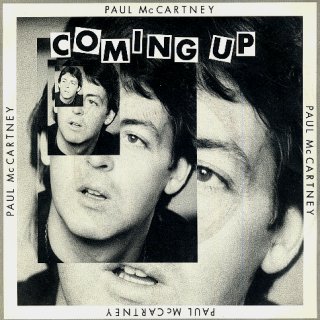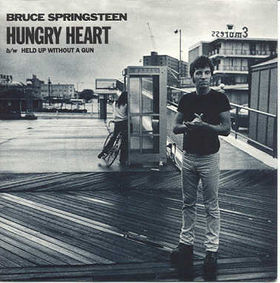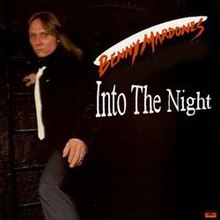
Göran BrorBennyAndersson is a Swedish musician, composer and producer best known as a member of the pop group ABBA and co-composer of the musicals Chess, Kristina från Duvemåla, and Mamma Mia! For the 2008 film version of Mamma Mia! and its 2018 sequel, Mamma Mia! Here We Go Again, he worked also as an executive producer. Since 2001, he has been active with his own band Benny Anderssons orkester.

Ray Erskine Parker Jr. is an American musician, singer, songwriter, and record producer. As a solo performer, he wrote and performed the theme song for the 1984 film Ghostbusters and also sounds from the animated series The Real Ghostbusters. Previously, Parker achieved a US top-5 hit in 1982 with "The Other Woman". He also performed with his band, Raydio, and with Barry White in the Love Unlimited Orchestra.

Greatest Hits Vol. 2 is a compilation album by Swedish pop group ABBA, released on October 29, 1979, to coincide with their tour of North America and Europe, which took place between September and November 1979. It was ABBA's second chart-topping album of the year and featured "Gimme! Gimme! Gimme! ", a brand new single, recorded in August 1979.

"Coming Up" is a song written and performed by the English rock musician Paul McCartney, released as the opening track on his second solo studio album McCartney II (1980). Like other songs on the album, the song has a synthesised sound, featuring sped-up vocals created by using a vari-speed tape machine. McCartney played all instruments.

Ruben Armand "Benny" Mardones was an American pop/rock singer and songwriter who was best known for his hit single "Into the Night", which hit the top 20 on the Billboard Hot 100 chart twice, in 1980 (#11) and again in 1989 (#20).

"I Melt with You" is a song by the British new wave band Modern English. The song, produced by Hugh Jones, was the second single from their 1982 album After the Snow. It became the band's most successful single, largely in the United States, where it was featured in the film Valley Girl and on MTV. It reached number seven on Billboard's Mainstream Rock chart in 1983 and a re-release reached number 76 on its Hot 100 chart in 1990.
Robert Tepper is an American songwriter, recording artist and singer, best known for his hit song "No Easy Way Out" from the Rocky IV motion picture soundtrack. He is also known for co-writing the hit song "Into the Night" with Benny Mardones.

"Hungry Heart" is a rock song written and performed by Bruce Springsteen on his fifth album, The River. It was released as the album's lead single in 1980 and became Springsteen's first big hit on the Billboard Hot 100 chart peaking at number five.

"On and On and On" is a pop song recorded by Swedish pop group ABBA. It was released as a single in a limited number of countries in 1980 as the second single from their seventh studio album, Super Trouper.

Survivor is the first album by the American rock band Survivor, recorded and released in 1979. It is the band's only album with its original drummer, Gary Smith, and bass guitarist, Dennis Keith Johnson. The recording sessions, overseen by the A&R executive John Kalodner, were not without difficulties. First, Ron Nevison replaced Barry Mraz as producer, and then the project had to be taken to Bruce Fairbairn in Vancouver to achieve a mix that was to Kalodner's satisfaction. The album took eight months to finally be released.

The Natural History were a band composed of Tepper brothers singer–guitarist Max and bassist Julian, along with drummer Derek Vockins. After playing locally in the New York area and self-recording their own three-song EP, The Natural History caught the ear of local NYC label Startime International, whose roster includes Brendan Benson, The Walkmen, The French Kicks, among others. Recording with Greg Talenfeld at Stonehouse studio in Nyack, New York, the band released the finished product as a self-titled EP in July 2002. The EP was promoted with a year-full of touring with Enon and Spoon, whereupon the band also found time to record their debut full-length effort Beat Beat Heartbeat, which was released in May 2003.

"Does He Love You" is a song written by Sandy Knox and Billy Stritch, and recorded as a duet by American country music artists Reba McEntire and Linda Davis. It was released in August 1993 as the first single from Reba's compilation album Greatest Hits Volume 2. It is one of country music's several songs about a love triangle.

Never Run, Never Hide is the second studio by pop-rock singer-songwriter Benny Mardones album, released in May 1980 by Polydor Records. It included his biggest hit, "Into the Night", which peaked that year at No. 11 in the Billboard Hot 100 chart, and re-charted nine years later, in 1989.

"I Ain't Gonna Stand for It" is the second single from Stevie Wonder's 1980 album, Hotter Than July. It reached number four on the Billboard R&B singles chart and number 11 on the Hot 100. It also hit number 10 on the UK Singles Chart. The song is famous for Wonder's imitation of a seasoned country-and-western crooner and his inspiring drumming. Charlie and Ronnie Wilson of The Gap Band provide backing vocals on the song. It was covered by Eric Clapton in 2001.

"I Won't Give Up" is a song by American singer-songwriter Jason Mraz. It was released as the first official single from his fourth studio album, Love Is a Four Letter Word, on December 26, 2011, via iTunes. It was written by Mraz and Michael Natter, and produced by Joe Chiccarelli.

Too Much to Lose is the third studio album from American singer Benny Mardones, released in 1981. It was produced by "The Wizard" Barry Mraz. The album was Mardones' last for eight years.

Benny Mardones is the fourth studio album from American singer Benny Mardones, which was released by Curb in 1989. Produced by Michael Lloyd, it was Mardones' first album since 1981's Too Much to Lose, following his battle with a drug addiction and other personal issues. The album was recorded and released after the successful re-issue of Mardones' 1980 hit song "Into the Night".

A Journey Through Time is the seventh studio album from American singer Benny Mardones. It was released in 2002 by Crazy Boy Records.

"Hometown Girls" is a song by American singer-songwriter Benny Mardones, which was released in 1980 as the second and final single from his second studio album Never Run, Never Hide. The song was written by Mardones and David Leigh Byron, and produced by Barry Mraz. As the follow-up to Mardones' US top 20 hit "Into the Night", "Hometown Girls" failed to enter the Billboard Hot 100 but reached No. 3 on the Bubbling Under the Hot 100 chart.


















